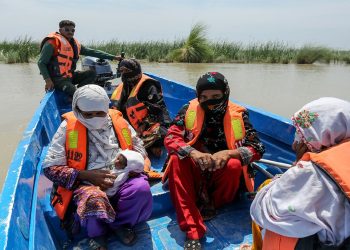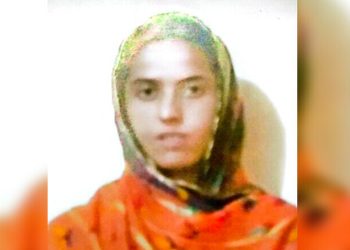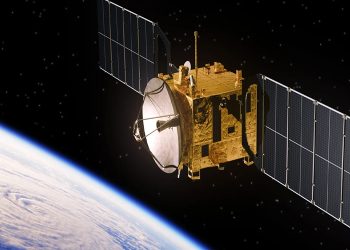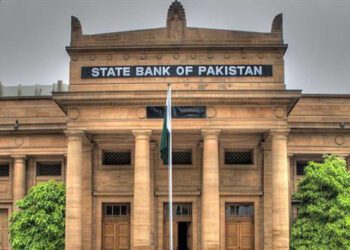The Senate passed a resolution for the mandatory teaching of Arabic in schools without many dissenting voices, reigniting a new debate on how it will shape our national identity. There is growing anxiety among the youth about the Arbabization of our culture and how will affect us and damage the nation’s social fabric.
There is no doubt that military dictator General Zia laid the breeding ground for the infiltration of Arab culturalism in Pakistan but the seeds were sown much earlier. Soon after independence, a motion was passed to name the country as ‘Islamic Emirate of Pakistan’ and make Arabic the national language but even the first prime minister Liaquat Ali Khan considered it far-fetched.
Although Jinnah had ever spoken of Pakistan as an ideological state, it was delineated soon after independence by his successors. Islam, hostility to India, and the Urdu language were identified as the cornerstones of the new national ideology. The first formal step towards transforming Pakistan was taken in March 1949 when the Objectives Resolution was passed which laid the foundation of the constitution. Soon after many personalities within the government mooted proposals for adopting Arabic as the national language and changing the script of Bengali from Sanskrit to Arabic-Persian.
Ayub Khan was the first to call for the teaching of Arabic in Pakistani government schools. Pakistan also harboured pan-Islamism aspirations but they were not realized until Z.A. Bhutto hosted the Islamic heads of states conference in 1974. The OIC was and continues to be controlled by Arab nations and to gain the support of the oil-rich Gulf States, Pakistan began to demonstrate affiliation with them and consequently distanced itself from the South Asian identity. These efforts were accelerated during the Zia era when funds poured in from Saudi Arabia to gain even more recognition.
The Islamization by General Zia also led to the Arabization of Pakistani society. The words Khuda Hafiz was replaced to Allah Hafiz. Zia overhauled the legal system with Saudi-style justice much to the shock of pro-democracy and human rights activists. Even the national language was not spared and despite the passing of three decades, we still witness language wars during the holy month of Ramazan. Before the early 2000s, most Pakistanis use the Persianized pronunciation for the world, Ramzan, but slowly the Arabic Ramadan was more prevalent and began to take hold from television commercials, billboards, restaurant deals, newspapers, sermons, talk shows and greetings by our friends and family.
People were now supposed to wish Ramdan Kareem instead of Ramzan Mubarak. They no longer performed wuzu, ablution required before prayers, but wudu and namaz prayers were increasingly salat. The cultural ramifications were now engrained but then took a ridiculous turn when vehicles in Lahore displayed ‘Al-Bakistan’ number plates. Since the letter P does exist in Arabic, Punjab was called ‘Al-Bunjab’ and young men started to add the word Bin in their names and started wearing the Arabic jubbahs on the streets of Pakistan. In the long chequered and distorted history, the Arabization of our society reflects a deep national identity crisis.
In 1947, Urdu was imposed as the sole national language of Pakistan, disenfranchising the ethnically and linguistically diverse population. Addressing a special convocation of Dhaka University in 1948, Jinnah made it abundantly and unequivocally clear that “Urdu and Urdu alone” would be the language of the state of Pakistan. His remarks did not go down well with his audience the seeds of ethnic discontent were sowed. This resulted in language riots during the 1950s and culminated with the separation of Bangladesh in 1971. The fracturing of the Pakistani identity can be linked to language but policymakers failed to understand and continued to pass laws to appease others.
Today, Pakistan is facing a chronic identity crisis. It has given Pakistanis an inferiority complex since we are South Asians and not Arabs and hence considered lesser Muslims.
We must acknowledge that culture and religion are two different identities. A Muslim can live in icy Alaska or the deserts of Arabia, their religion does not define them but sets moral boundaries. A dupatta does not make a woman a less Muslim than wearing an abaya, nor is the world Khuda lesser Islamic than Allah. We have a rich identity and should celebrate and embrace our diverse ethnic languages, cultures and traditions to create a pluralistic society.
The Arabization of Pakistani society will leave us confused as we will never be accepted by Arabs despite our best efforts to adopt our culture. There is no barrier to learning Arabic or language but it should be mandatory or part of considering the parameters towards being a good Muslim. By shunning our rich culture, we will become a rootless society with no course of direction.






























